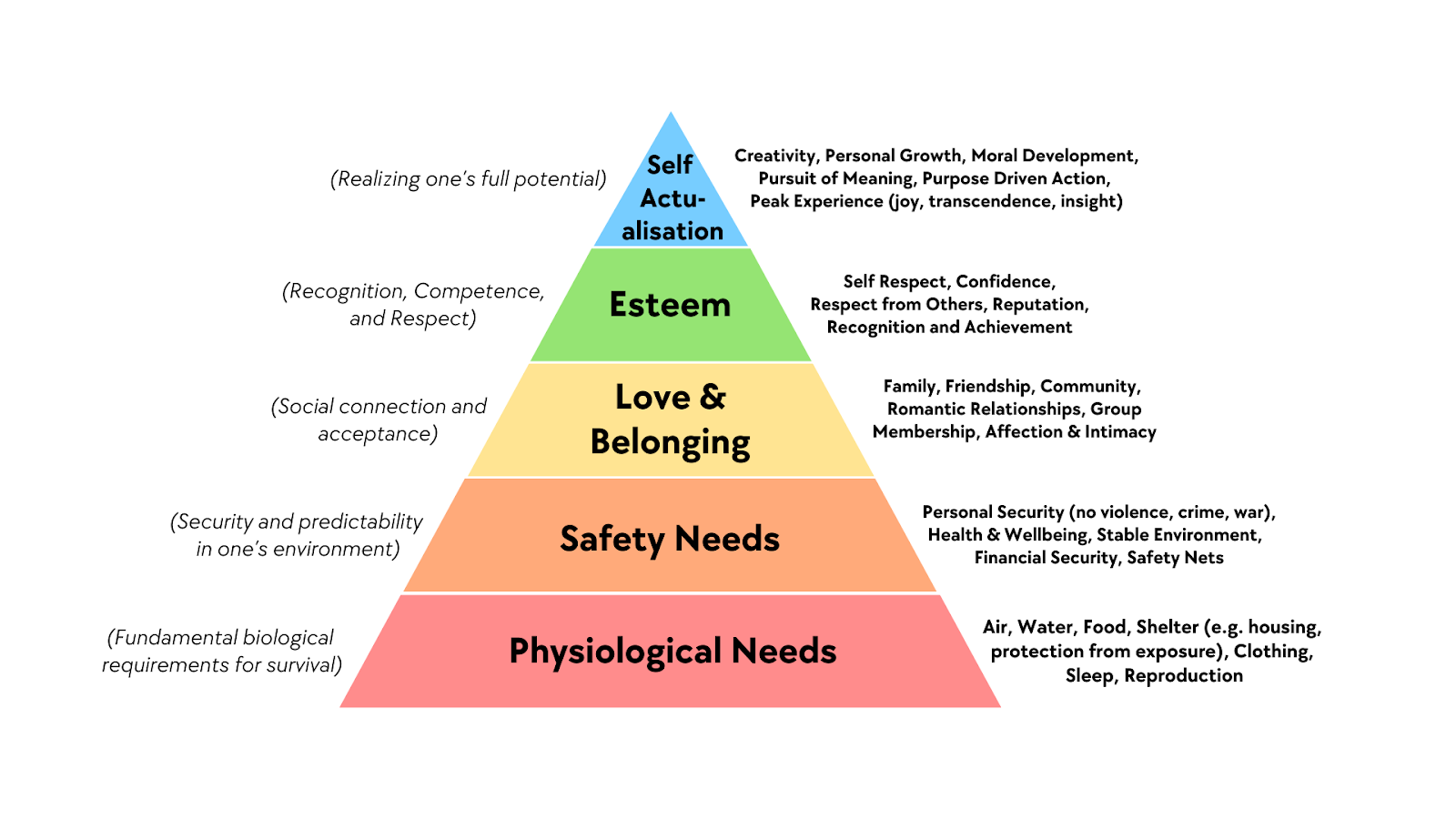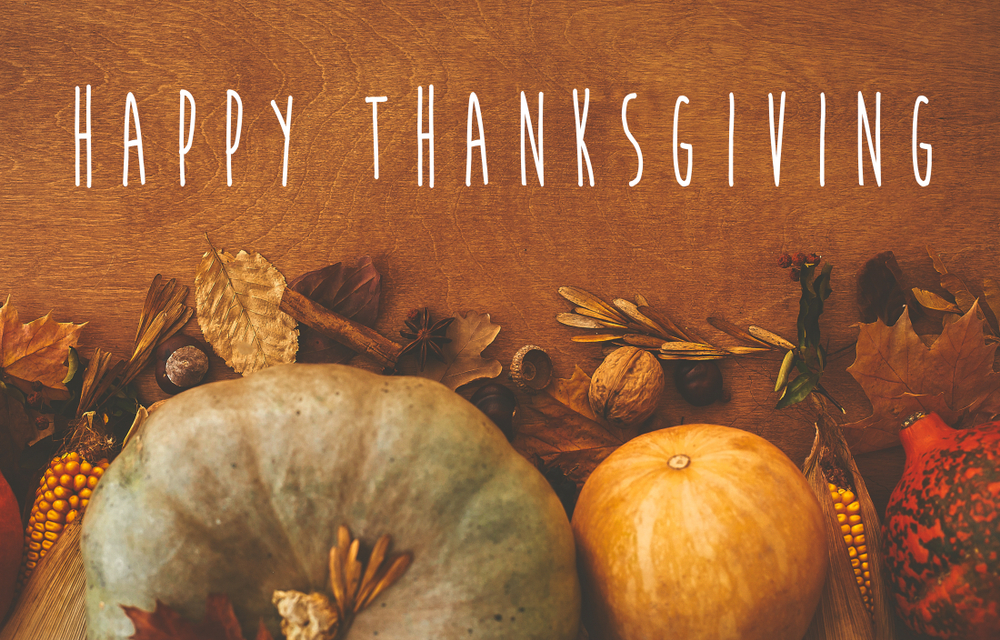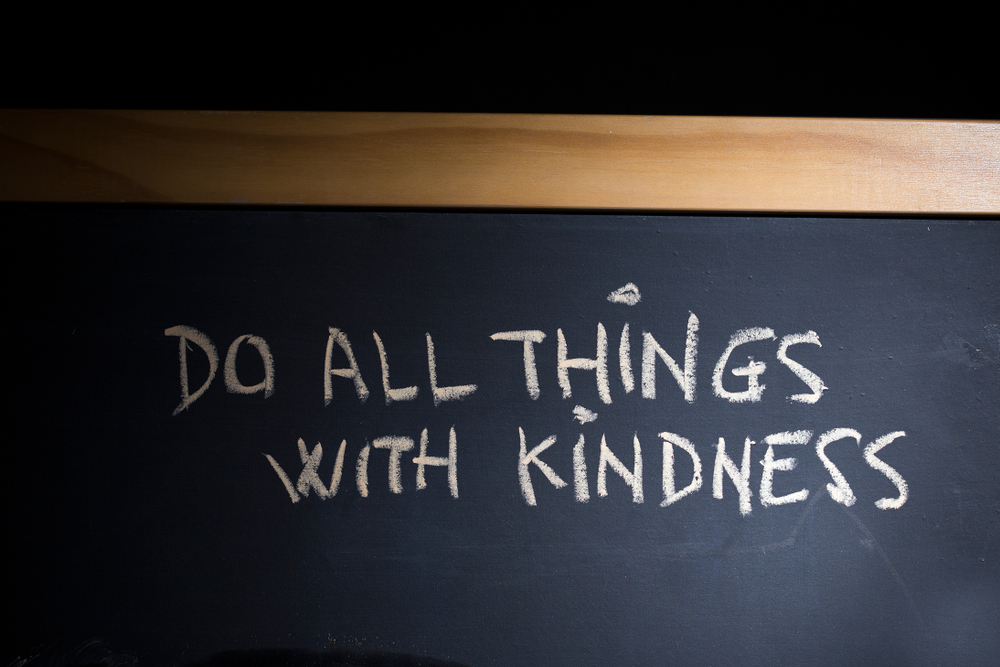By Stephen DeAngelis
An anonymous pundit once observed, “We may not have it all together, but together, we have it all.” Americans would be wise to remember that bit of wisdom as we celebrate Thanksgiving. What does it mean to “have it all”? If you believe that “having it all” only addresses material things, then you are blind to many of life’s treasures. The late American psychologist, Abraham Maslow, understood how much better life can be when one has a positive attitude and recognizes one’s own self-worth.
Maslow was born and raised in Brooklyn, New York, to Jewish immigrants from Kyiv, Ukraine. At the time, Ukraine was part of the Russian Empire and his parents fled to America to save themselves from Czarist persecution. Maslow was born on 1 April 1908 and he was the oldest of the couple’s seven children. Like most immigrants, his parents were poor. Being Jewish, Maslow was often the target of antisemitic gangs who would chase and throw rocks at him. Fortunately, he learned valuable lessons from such acts of racism and ethnic prejudice. His family’s poverty helped him appreciate the basic needs of every human being. His persecutions taught him the value of feeling safe. His lack of close family or friends taught him the value of belonging. His education taught him the value of self-esteem. His own personal life’s journey taught him the value of realizing one’s full potential. Using these life’s lessons, he eventually created what is now known as Maslow's hierarchy of needs, a theory of psychological health predicated on fulfilling innate human needs in priority, culminating in self-actualization.

Maslow taught, “Happiness is not something ready-made; it comes from your own actions.” He also believed, “We are all capable of becoming something good and noble.” Individuals living in many countries, including the United States, continue to struggle with life’s challenges at the two lowest stages of Maslow’s hierarchy (i.e., physiological and safety needs). Fortunately, many of us are in a position to help them with their struggles. This is often done through charities and/or religious organizations. When governments operate at their best, they also create programs to help marginalized and struggling individuals and families. When all of these groups work together, we can say, along with the anonymous pundit, “Together, we have it all.”
When Englishman Mike Harvey, Managing Director of 1st Move International, looks at America, he sees dozens of reasons Americans should count their blessings.[1] They include: Economic opportunities; higher education; cultural diversity; natural beauty; innovative technology; world-renowned healthcare; international cuisine; quality of life; philanthropy & volunteerism; art & cultural events; strong economy; accessible public services; and religious freedom.
Counting only material blessings will never make you happy. Robert A. Emmons, an emeritus professor of psychology at the University of California, Davis, and one of the world’s leading scientific experts on gratitude, wrote the following during the midst of the Great Recession back in the 2013:
"A decade’s worth of research on gratitude has shown me that when life is going well, gratitude allows us to celebrate and magnify the goodness. But what about when life goes badly? ... My response is that not only will a grateful attitude help — it is essential. In fact, it is precisely under crisis conditions when we have the most to gain by a grateful perspective on life. In the face of demoralization, gratitude has the power to energize. In the face of brokenness, gratitude has the power to heal. In the face of despair, gratitude has the power to bring hope. In other words, gratitude can help us cope with hard times."[2]
Emmons beliefs echo those of an earlier 17th century English poet, Henry Austin, who asserted that if we are only thankful when things go right, we are not being thankful, we are being selfish. He wrote:
“Prosperity has left its blessings. The table is laden with plenty. There is meat in the larder and grain in the storehouse. Because of these things, [we] imagine [we] are grateful, but such gratitude is the essence of selfishness. It is dependent upon exterior conditions. It finds its basis in circumstances. It draws its inspiration from clear skies and smooth sailing, and hence it is fitful and evanescent as the alterations of sunlight and shadow. If these conditions of personal comfort and prosperity are in themselves the ground of thankfulness, where in the hour of adversity shall we find the occasion for rejoicing? The record of the past has the graver side. There have been pain and losses and disappointments and bereavements and heartaches. Where in these things is there reason and ground for gratitude? Has the empty larder, the bare table, the desolate home, the vacant chair, the fresh mound in the cemetery, no place for thanksgiving? Ah, here is the point of stumbling with an earnest soul. We find in the bitter chill of adversity the true test of our gratitude and that is true gratitude which triumphing over conditions, merely physical and external, finds its ground of thankfulness in God himself. It is independent of circumstances.”
On this Thanksgiving Day, may we find gratitude regardless of our circumstances. As another anonymous observer once stated, “Gratitude turns what we have into enough.”
Footnotes
[1] Mike Harvey, “44 Great Reasons to Move to the USA,” 1st Move International Blog, 7 May 2025.
[2] Robert A. Emmons, "How Gratitude Can Help You Through Hard Times," Greater Good Magazine, 13 May 2013.






.jpg)

